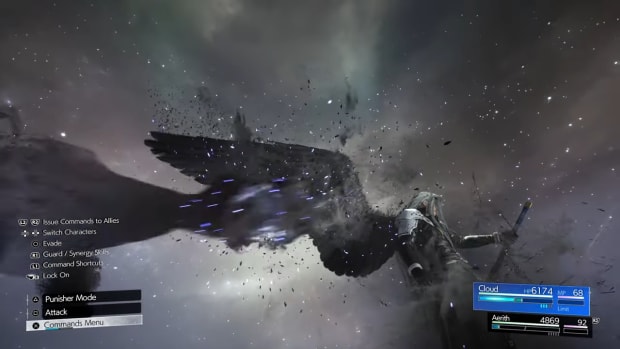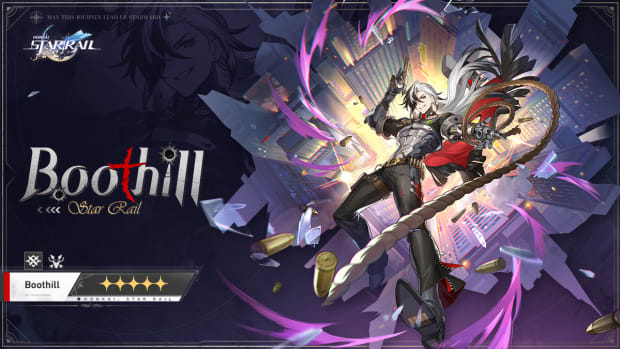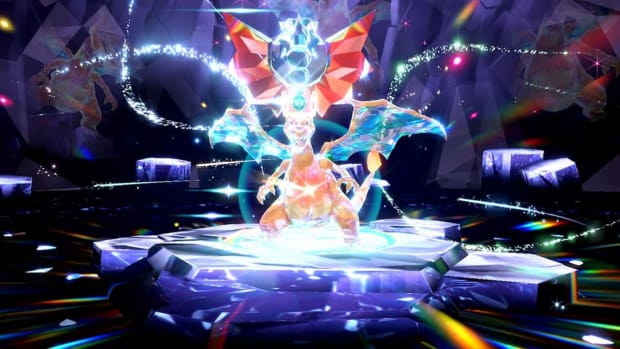
Behind the tunes The Lamplighters League is dancing to
The Lamplighters League, a new turn-based tactics game developed by Harebrained Schemes, is an adventure full of supernatural mystery, tense cat-and-mouse games, and action-packed combat, all packaged into a 1930s pulp-fiction setting reminiscent of Indiana Jones – every part of the game oozes style, and that goes for the soundtrack as well. In the days ahead of release, we had the chance to ask composer Jon Everist about his work on the title.
Everist is well known for his work on Harebrained Schemes’ games, having won an award for his BattleTech score back in 2019, and was involved in the development of The Lamplighters League from very early on.
“I always like to get involved as soon as possible, and many developers or directors come to me when they are just at the project's concept stage,” Everist tells GLHF.

The Lamplighters League is a stylish adventure on the more relaxed side of turn-based tactics games.
Harebrained Schemes / Paradox Interactive
He elaborates: “The goal of music is similar to any contributing art form in game development. We aim to inspire each other and use that inspiration to create more compelling and cohesive work. If I’m involved early, as I was with The Lamplighters League, I can write music inspired by the game’s amazing concept art and world-building, and then the music I write can inspire the artists and writers. When done right, it creates a virtuous cycle that is fantastic to be a part of.”
Where to begin, though? Everist says that the “most time-consuming aspect of starting any project” is coming up with the main theme – which, paradoxically, is something many players won’t ever completely listen to, since it’s playing in the main menu, a mere transitory space. “As a composer, I always hope to spend as much time tinkering with themes and motifs as possible,” Everist states.
“For The Lamplighter’s League, I wrote a suite of music when the game was still just an idea. What you hear now in the game is part of that suite I developed into the Main Theme,” he explains. Everist remarks that what’s now the Main Theme is actually a combination of two pieces he had pitched separately as potential Main Themes. The first part featuring a muted solo trumpet was written five years ago and is meant to represent the mystery of the Lamplighters League and its leader, Locke.
“The solo trumpet gives way to a full orchestra, repeating the motif several times before taking it in slightly different directions,” he goes on. “Later in the piece, we hear another much more bombastic and action-oriented theme. This was originally written to represent the larger-than-life adventure our group of misfits encounter. Rather than keeping these themes separate, we decided to combine them into one. Another aspect of thematic writing is that it gives composers an anchor they can constantly reference. As you play the game, you’ll hear the main theme throughout. Reinterpreted and re-orchestrated. Reharmonized and reversed. It allows the vibe set at the start of the game to reverberate all the way to the end.”
You may know this technique from opera or movie scores – John Williams in particular is a master of it and served as one Everist’s inspirations, even though he tried to go into the project with a clear mind: “I always try my best to come to a project with as little referential baggage as possible. It’s impossible to ignore the great films of the 80’s and 90’s whose scores I grew up on. The greats like John Williams and Jerry Goldsmith always inspire me.”
“I love the pulp and fun in action movies like Indiana Jones and The Mummy,” he continues. “In my opinion, the playfulness in the music allows the dramatic moments to shine. Evil occultists trying to take over the world can't seem to dampen the fact that saving the world is a damn good time.”
Everist has experience with creating scores for both real-time games and turn-based titles, so I ask if there are any significant differences between the genres for his work. “Definitely,” he says. “With any game, you always have to think about how long things will take average players to get through, but turn-based games become wildly variable and hard to predict. For example, I have seen some players spend 20 minutes planning a strategy, carefully dissecting every move and potential outcome. I play The Lamplighters League like a psychopath, rarely spending more than five seconds thinking about what I will do – it’s probably why I die a lot. To write music for a game like this, you need to be aware that people will approach it in wildly different ways. This is why I developed a music system that would change slightly based on which character you control.”
He explains that every character in the game is represented by a solo instrument. When players take control of someone in infiltration mode, the game’s real-time stealth component, this comes into play. “When you switch to another character, their instrument will naturally leave, and the new one will come in, as if you are listening to these soloists in a concert,” Everist says. “They may not be playing the same lines or have very different sounds. They also won’t be played every time or all the time, but they will subtly poke out occasionally to anchor you to your choices. Being subtle with these sorts of games can be very effective in the long run, as they are meant to be played many times, and you may end up hearing the same piece of music often.”
In this way, the score really feeds off of the game mechanics and supports them from the background. This is another reason, Everist says, for why he likes to be involved as early as possible in a project – it allows him “to create a music system around the fundamental pillars of the game. The music system ultimately influenced the way that I ended up writing and recording the full score. I try to create what I call ‘music pillars,’ or a minimum viable interactivity for the project.”
“For The Lamplighters League,” he says, “the low-hanging fruit is our infiltration/stealth mode and combat modes. We also change music based on location, which characters you load in with, and which character you’re actively controlling. Lateef, for example, is one of our sneaks, and he is represented by a solo clarinet. When you switch to control Lateef, you should hear the clarinets come up and accentuate parts of his personality. There’s a playfulness and sneakiness to him that is supported by the clarinets. When you switch back to Fedir, one of our bruisers, you’ll hear his solo bassoon, which matches his stature and loveable brutality.”
Interestingly, Everist chose to keep synthetic elements – the type of music he’s best known for – to a minimum. “It was a very conscious choice for me when starting this. The only synthetic aspects of this score come from resampling our orchestral recordings and stretching them out in extreme ways. Making a two-second recording last up to five minutes, for example. This only happens in one or two very particular moments when we want to capture an otherworldly feeling,” he explains.
Finally, I ask Everist which character from The Lamplighters League he’d most love to write a personal music theme for. “I truly love all these characters, but I have a soft spot for Lateef and Fedir,” he says. Lateef is a master thief from Cairo, a witty and sneaky character, while Fedir is a heavyweight bruiser with a dark past. “I usually play games as a sneaky character, and I find the chaos you can cause with Lateef hilarious. You can turn the tides of a battle with his special, and it’s always fun for me to try to complete a mission by sneaking and knocking out as many people as possible. I also love how he seems to annoy everyone in the crew.”
“Fedir is such a fun character to interact with throughout the game – and his quips always make me laugh,” he continues. “I love peeling back his layers to understand him, what he’s seen, and what he’s done. These characters are flawed, and many don’t believe they deserve redemption – some don’t even want it. Each one has a story that is compelling and deserves its own spin-off.”

Lateef is a mobile and sneaky character, who can give opponents headaches with his evasion skills.
Harebrained Schemes / Paradox Interactive
The Lamplighters League will be released on October 3, 2023, for PC and Xbox Series X|S. It’ll be available on Xbox Game Pass on Day 1. You can already read our The Lamplighters League review to find out more about the game.



